2021 mouse plague could impact mental health of regional NSW residents
Residents across western NSW are being driven to breaking point by the mice plague, as a psychologist said the mental health impacts of the infestation were comparable to bushfires and floods.
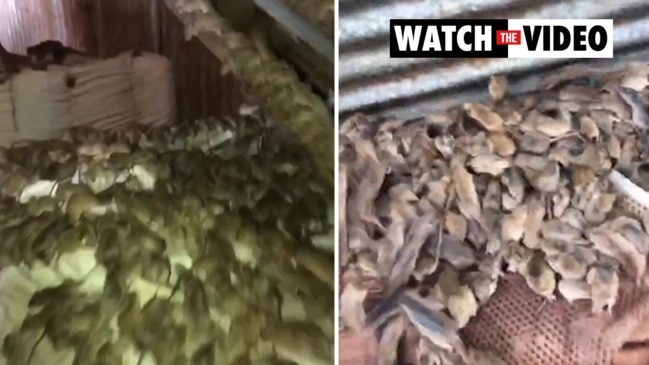
NSW
Don't miss out on the headlines from NSW. Followed categories will be added to My News.
Residents across western NSW are being driven to breaking point by the mice plague, as a psychologist said the mental health impacts of the statewide infestation were comparable to natural disasters such as bushfires and floods.
Those in the bush say they’re spending thousands of dollars on mouse traps and bait – when shopping-centre shelves haven’t been stripped bare of them - while many can’t get a full night’s sleep without waking up to the sounds of rodents scurrying through their homes and even their beds.
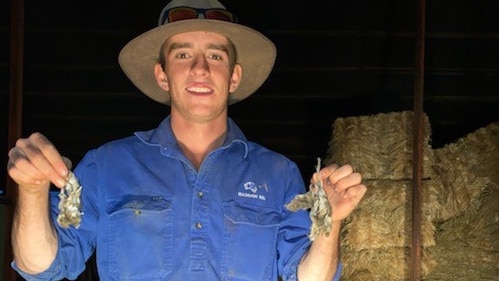
It comes as Associate Professor Gene Hodgins, from Charles Sturt University’s school of psychology, said the impact of the plague on populations who had likely been through bushfires and drought could be “the straw that breaks the camel’s back”.
“We know that any chronic, ongoing stress that is constantly around you has a negative impact on your mental health,” he said.
“The big thing with rural people as well, it’s out of their control, much like natural disasters.
“With people who have been through drought or fire as well, something like this can be the straw that breaks the camel’s back.”
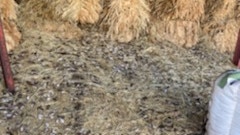
“The big thing is acknowledging it — it can have a big impact on people like other natural disasters — if you’re struggling about it, it’s important you talk about it.”
Ryan Edwards, a 28-year-old electrician and young father from Parkes, said the smell of dead mice at his work was “horrendous”, while he was constantly worried about his two pet dogs eating bait-laden rodents.
“You spend that much money on bait and traps and they just keep coming,” he told the Telegraph.
“They’re scratching in the walls and eating the foam in the aircon above our bed, so you wake up in the middle of the night smashing the wall trying to scare them off.”
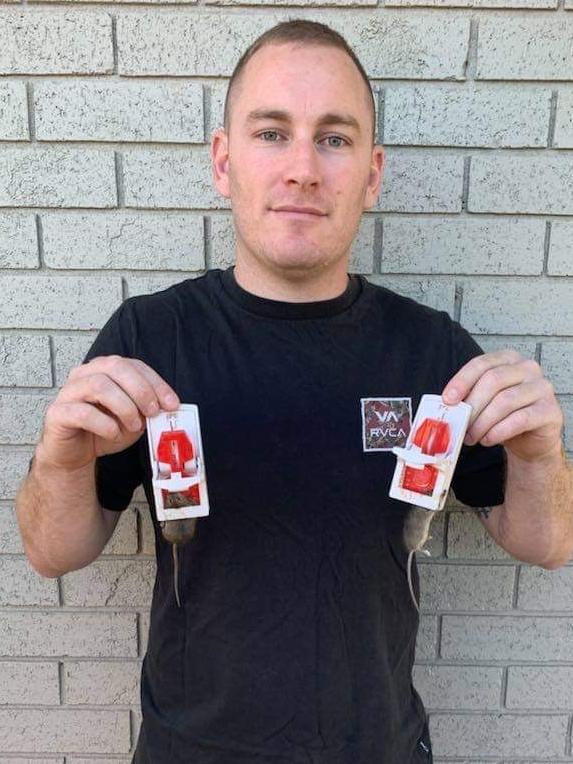
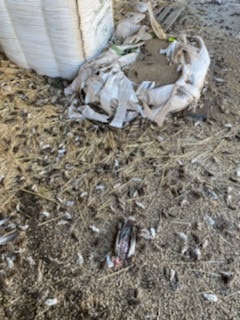
“They run around in the roof and it sounds like they’re playing soccer with the baits.”
“It’s stressful - you just want them to f*** off but you can’t catch them all.”
Charlie Rigby, an 18-year-old jackaroo working 20km west of Warren in the state’s northwest, described the region as the “centre” of the plague.
“They’re getting in every aspect of our farms and every aspect of our lives,” he said.
“Sometimes I wake up from mice running on the floor, I’ve had a few in my bed.”
The financial toll was adding to the stress of residents out in the west, he said, after a wet summer and booming harvest led to the explosion in rodent numbers.
“We’d be spending thousands on traps and baits regularly,” he said.
“They’re ruining thousands and thousands of dollars’ worth of grain and hay.
“There’s only a certain amount we can do to keep up with it. It’d be nice to get some support.”
Agriculture Minister David Littleproud ruled out that support coming from federal level, saying dealing with the pests, as an internal biosecurity matter, was a State government issue, saying it was “important that States step up”.
NSW Minister for agriculture Adam Marshall said “barring intervention from mother nature”, the most effective way to manage mouse populations was reducing the availability of food and shelter in combination with pesticide bait control — saying the State government had successfully lobbied the Federal Government to allow widespread purchase of powerful pesticide, zinc phosphide, to combat the plague.





